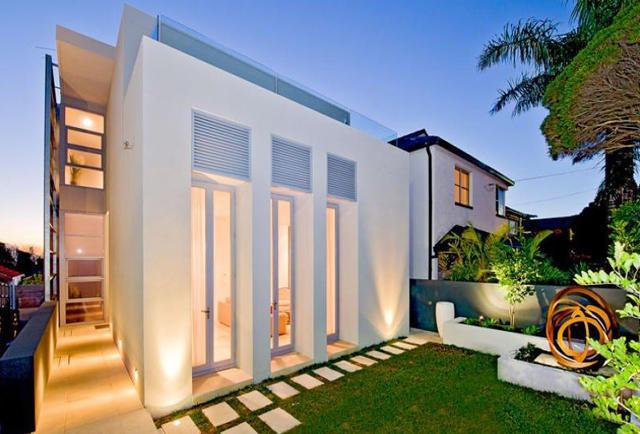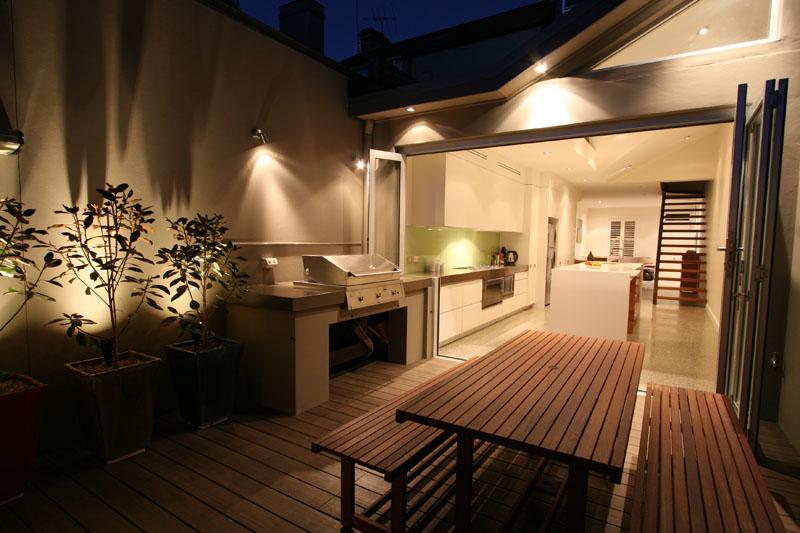Hire local electricians
Where do you need electricians?
Everything you need to know about finding an Electrician
For all electrical work in your home, beyond changing a lightbulb, it's vital that you consult a licensed electrician. For the safety of homeowners, all states and territories require all electrical work to be carried out by a licensed contractor. Unlicensed electrical work is illegal and may also be unsafe. There is also more information about the licensing of electricians on Licensedtrades.com.au.No matter what electrical job you need doing around the home, an electrician will be able to help you.
What an Electrician Does
Electricians work with all of the electrical components of the house. Electrical services they provide include but by no means are limited to:Electrical rewiring: Your home may need to be rewired, either partially or fully, if electrical circuits or power points need to be replaced. This is more common in old buildings and properties which were poorly wired during construction. Due to limited access, brick buildings tend to be costlier to rewire.
Electrical repairs: From time to time, the electrical outlets in your home will need to be repaired. Any repairs to any aspect of your electrical system should be undertaken by a licensed electrician. Electricians can assist with all electrical repairs including replacing power points and repairing wiring.
#hiptip keeping an eye out for potential electrical hazards will ensure your continued health and safety

Safety switches: These protect you and your family from power surges, faulty appliances and damaged wiring. The safety switch works by monitoring the flow of electricity through a circuit and trip when the electrical current escapes from the system.
Lighting: If you need lights installed or repaired in your home or commercial premises, a licensed electrician can help. Whether you have LED, track, fluorescent, neon, halogen or flood lights or would prefer downlights or garden lights, an electrician can help with installation and repair.
Security lighting: This is an essential component of any home or commercial premises security suite. The most common solution for security lighting is a floodlight coupled with a motion sensor, which activates a beam. Day/night sensors and time clocks are also really popular. Consult a licensed electrician to install security lighting and sensors on your property.
Wiring a new home: If you’re building a new home, you’ll need a construction electrician for wiring and installing all the electrical elements and outlets. Proper planning and consultation will ensure you have an electrical system that suits the layout and design of your new home.
#hiptip an electrician can customise the wiring and power points in your home to your specific needs.New electrical installations: A licensed electrician should be consulted if you are considering building a new home or to customise and change the electrical system in an existing home.
Power points: Due to legislation, only electricians can undertake powerpoint repairs and replacement. They will be able to consult on the amount of power points you need and their placement in the home. Electricians can even install USB powerpoints.
Switchboards: These route electricity around a building and are designed to protect you from electrocution. Switchboards can also help to isolate faulty wiring and appliances. Your switchboards will need replacing and upgrading on a periodic basis, especially if you live in an older home or building.
Test and tag: This involves testing and labelling electrical equipment so that the electrician can identify and repair faulty items. This is typically performed by a specialised electrician who uses dedicated equipment. Electrical test and tag equipment can also detect insulation deficiencies and earth leakages.
Renovations: If you’re renovating your home or commercial premises, an electrician will need to be consulted to install or remove power points, sockets and lighting. They can also assist with routing new wiring and installing switchboards in newly renovated rooms and additions.
Solar Power: Installing a solar power system can help improve the energy efficiency of your home and reduce your energy costs. Electricians who specialise in installing solar power units can advise on the most suitable option for your home.
Back Up Generators: It can be a good idea to install a backup generator to provide a backup source of electricity in your home. You should buy a back up generator depending on how often you will need it. Your electrician will be able to advise on a suitable generator to suit your needs.
#hiptip it’s wise to choose a generator that produces more power than the sum of power required by your home appliances; this will avoid fuses blowingUninterruptable Power Supply (UPS): A UPS is a back-up system used to protect electrical equipment from surges and power failures. The system provides backup power to equipment such as modems, fax machines and computers.
Other tasks electricians can perform include:
Electrical Data Cabling: Data cabling should be considered when you install systems for computers, telephones and security. You should hire a registered data cabler to give advice on the best data cabling and installation for your needs.#hiptip anyone who works on data, optical-fibre, co-axial, underground or aerial cabling needs to have completed appropriate training and be registered by the Australian Communications and Media Authority (ACMA)Fibre Optic Cables: Installing fibre optic cables carries many advantages, including wide bandwidth, clearer telephone services, high quality sound and image given by home entertainment systems and even being non-flammable.
Home Automation: A licensed electrician can install a home automation system in your home, which coordinates all security, lighting and household entertainment systems with a one-touch control. Smart homes can also control the timing of garden irrigation, windows, air conditioners and pet feeding.

Home Entertainment: This system combines the functions of several electrical components in order to enable the home viewer an experience of watching a theatre style movie. Speak to your licensed electrician about installing a home entertainment system.
Alarm Systems: Your local licensed electrician can play a huge role in the general security of your home. From smoke alarms to state of the art security systems, electricians are the most qualified to give you the best advice.
24/7 Emergency Service: Most electricians will offer a 24/7 emergency service 365 days per year to deal with any electrical emergencies you might be experiencing, from smaller emergencies like power outages through to larger electricians like fires and dangerous electrical currents.
Electricians also install electrical equipment e.g. water heaters and air conditioners
Selecting an Electrician
It's essential your chosen electrical contractor is fully licensed. Ask to see the license and make sure it's valid. By law, all electrical work must be done by a licensed professional and having a valid license means that you’ll be protected legally if there are any problems with the work carried out. The professional must also have the correct insurances such as Worker’s Compensation insurance and General Liability Insurance. Ask to see certificates of insurance.Will the professional provide a certificate of electrical safety or a similar certificate? This states that the work has been done by a licensed professional, has been tested and is safe. It acts as a guarantee to you.
Also, ask for several quotes before selecting a professional and remember that the cheapest quote is not necessarily the best. It's more important that you're comfortable with the person or company performing the work.
How Much Does an Electrician Cost?
Hourly rates for electricians can cost from $60 and upwards per hour depending on location and experience. Also expect to be charged a call out or service fee which can range from $70 - $130, with the hourly rate calculated in 15 minute increments. Electricians who don't charge a call out fee may charge more per hour.You should expect to pay more for an emergency 24/7 electrician who is able to provide a service outside of normal trading hours. Remember that all costs and prices can vary depending on where you live, market forces and what electrical work you need done to your home, so it's always best to get a variety of quotes.
Find Tradies the Easy Way
Why do you need my email address?
We need your email address so that we can send you the details of businesses who express interest in your job.
Why do you need my phone number?
We need your phone number so that businesses who express interest in your job may call you for more details.